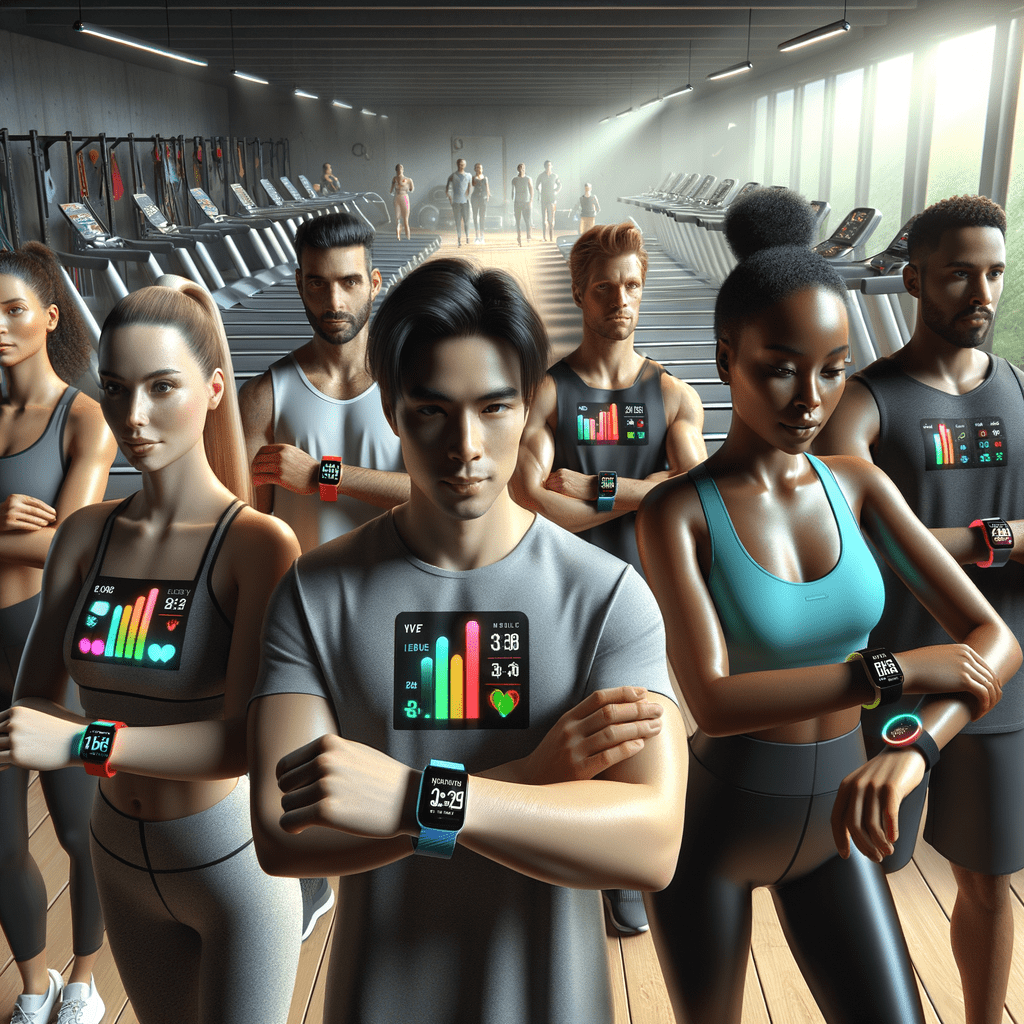Fitness trackers, those cheeky little gadgets that have basically waltzed their way into our daily lives, are everywhere! Whether you’re grunting it out at the gym, puffing along the park path, or just trying to savor an uninterrupted meal—there they are, stealthily tracking our steps and giving us that little “Hey! Time to move!” alert. Sometimes I feel like they’re side-eyeing me when I’m too attached to my couch.
Thinking back, I remember the awkward moment when I first donned a fitness tracker. It was like trading my innate sense of “I’ve done enough today” for a mini command center that beeped orders via a tiny screen. It was weirdly sci-fi for someone who’s more ‘garden gnome’ level adventurous. This digital step-buddy made me rethink: is it just about counting steps and heartbeats, or something beyond?
What Fitness Trackers Do
Alright, here’s the lowdown. Fitness trackers want to be our health buddies, cheering us on to hit those fitness goals – you know, the ones we promise ourselves every New Year. They count steps, track our heartbeat, guess our calorie burn, even peek into our dreams (uh, creepy much?), and try to measure our stress. I confess, back in the day, I wouldn’t have tracked these things unless you forced me to with a very thick notebook and a lot of patience. Imagine, like a digital conscience, poking at me to get off my tush or go to bed early. Sometimes these reminders make me go “Ugh, I know I’m too laptop-tied,” while feeling both sorry and determined to do better. These aren’t mind games; they’re like gentle nudges, hoping we’ll listen, better ourselves, and take charge of our health stories.
Why We Love Them (Or Hate Them)
Oh, the mixed feelings! Fitness trackers are like Marmite—you either love ’em or, eh, not so much. Some folks adore them; their inner data-geek thrillin’ at the numbers game, making changing health goals just a bunch of tiny to-dos. For others, they’re like the overbearing relative—making every leisurely walk feel like militant marching. I’ve been all over the map with them, thinking they’d revolutionize my life only for them to become naggers. What’s the secret? Balance. These devices don’t get to call the shots; we’re the protagonists in this tale, remember?
Our Haus of Data: Pros and Cons
No magic tricks here—fitness trackers won’t suddenly make you the next fitspiration star. They’ve got perks, sure. Like suddenly realizing you’re lazier than expected on Tuesdays (oops, spilled my tea there!). This newfound reflection is like navigating a new city with a map: refreshing and kinda fun. But then, there’s the accuracy problem. Can it actually tell if my heart’s racing from jogging or ’cause I’m watching a thriller? These little contraptions are cool, but not fortune tellers. Plus, they can hog your time and invade privacy—who likes being watched 24/7, even if it’s for health’s sake?
A Companion in the Fitness Journey
Yet, amidst the chaos, there’s comfort. These trackers motivate—unlike anything else—when life demands more than we think we can give. They’ve been that solid friend who nudges when motivation’s lost in the pile of life’s chores. Ever so sneakily, they prompt us from spectator to participant, altering small daily choices until fitness is less of a hurdle and more of our routine.
Beyond Physical – Mental Health Aspect
Now, let’s chat mind over matter. Fitness trackers might look all pomp and show with their physical health claims, but they pack a mental wellness punch too. There’s a harmony that comes with moving that can lift spirits—kind of like the same glee you get seeing a progress chart burst with colors. There’s a tale I could recount, where a simple walk outside did wonders for turmoil more than a tracker’s charts ever could claim.
Those sleep digits? Oh, they might just look math-y initially, but they shed light on our zzzz’s, steering towards better bedtime routines and thus a better mood.
The Bigger Picture
Sure, some might eye-roll at these gadgets, dismissing them as elusive transformers of health. But look closer, and they prompt a larger narrative—one of health awareness wrapped in friendly digital nudge rather than iron-clad obligation. Our connection to trackers somehow bridges the gap between contemprary digital life and holistic wellness principles; pushing us to be consistent, patient, and celebrating victories big or small.
In closing, here’s my take: fitness trackers are pals, not tyrants. They’re a little voice whispering that each choice—each step—writes a new page in our health story. As I pen this from my comfy perch, pondering tomorrow’s strides, I remember: every journey starts with one step, perhaps sparked by that familiar beep or the reassurance of a pulsing wristband.
To quote a wise soul—the trek of a thousand miles starts with just one tiny step—sometimes inspired by nothing more than a blip on your fitness tracker.


